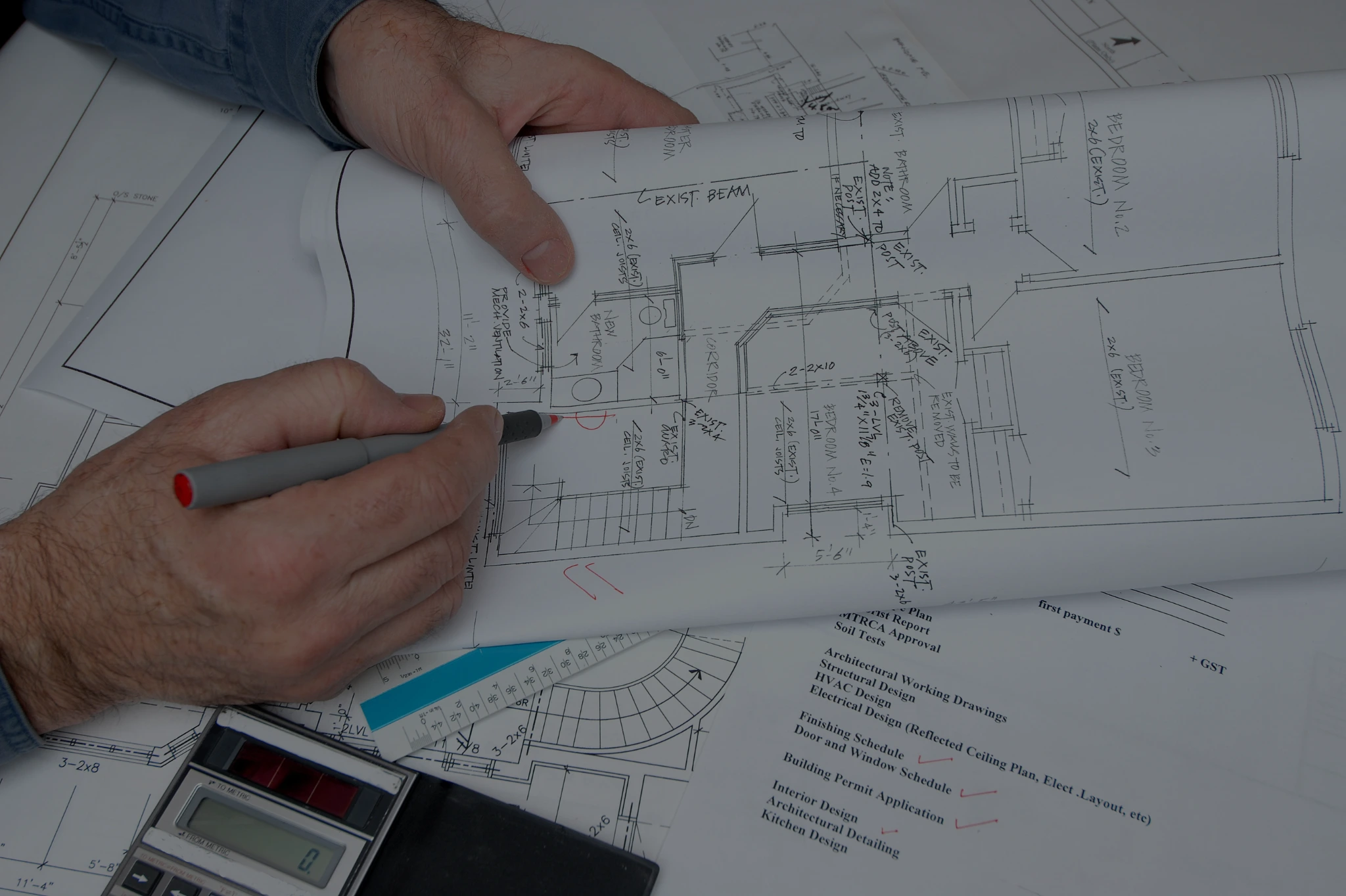Types of Construction Estimation
In the world of construction, understanding the types of construction Estimation is essential for contractors, owners, and anyone looking to undertake a building project. These professionals play a crucial role throughout the phases of a project, from early planning to final delivery. Each kind of estimator specializes in a different level of detail and serves a specific purpose, depending on the scope, size, and stage of the work.
Utopian Takeoffs Construction Estimation Services
As expert construction estimators, we provide a full range of professional estimating services designed to eliminate guesswork and bring clarity to your construction planning. Whether you’re in the early concept stage or preparing a competitive bid, our team offers detailed, trade-specific, and phase-focused estimates—including MEP, structural, civil works, design-build, and specialty trades like waterproofing. Our mission is to help you stay on budget, avoid costly overruns, and make informed decisions at every stage of the project. With precision, experience, and industry insight, we turn complexity into confidence.
Table of Contents
Preliminary Cost Estimator
A preliminary cost estimator focuses on early, rough, and approximate estimates before detailed design documents are available. These estimates are usually prepared to help owners, developers, and financiers decide whether the project is financially viable.
- Based on similar projects, past buildings, or existing office spaces
- Helps in understanding how much a building might cost to complete
- Gives a general idea of what can be afforded and how the budget should be allocated
- Often revised as the design and scope become clearer
- Experienced estimators rely on historical data and abstract details to guide owners
Whether you’re planning a new construction or evaluating an existing structure, the preliminary estimator helps provide a financial foundation for the journey ahead.
Detailed Cost Estimator
Once the design is more complete, a detailed cost estimator steps in. This professional prepares an itemized breakdown of materials, labor, equipment, and support costs for every element of the project.
- Quantifying every unit of work, like masonry, glazing, foundation, and brick
- Uses priced documents and up-to-date material prices
- Includes labor, subcontracted trades, specific requirements, and order of execution
- Often responsible for understanding the structure, its components, and budget alignment
- Provides a solid basis for cost control and project delivery
A detailed estimate is essential for contractors who need to understand every line item before committing to a job.
Quantity Cost Estimator
This estimator’s job is to measure, count, and quantify every component needed for the project—from concrete slab, floor fixtures, and electrical units to plumbing forms and roofing pieces.
- Utilizes digital takeoff tools and standard techniques for accurate calculations
- Helps contractors prepare bids based on real, quantified data
- Essential in actual development phases and ensures materials are not over-purchased
- Works closely with general contractors and trades to ensure jobsite accuracy
- Adjusts for varying unit sizes, square foot coverage, and site-specific differences
Whether in Illinois or anywhere else, this estimator adapts to site needs and ensures no unit or piece is overlooked.
Bid Cost Estimator
The bid cost estimator focuses on crafting a competitive bid to win a project. These estimates are submitted as part of the contractor’s proposal, often including markups, overhead, and profit margins.
- Prepared using digital software and accurate pricing data
- Includes contingencies, contract allowances, and line-item costs
- Helps the client assess whether the contractor’s price aligns with their budget
- Aims at creating a winning estimate that balances final expenses and profitability
- Takes into account items allocated for specific jobs and scope of work
A well-prepared bid estimate is the difference between getting the job and losing out.
Control Cost Estimator
A control cost estimator works during the project to ensure it stays on budget and on track. This professional monitors the actual costs incurred, tracks progress, and updates estimates based on revised scopes or changes.
- Reflects approved budgets, financing, and customer expectations
- Uses monitoring tools to track status, create reports, and flag variances
- Helps contractors and owners maintain financial control throughout construction
- Estimates are separated by category—labor, materials, overhead—for better clarity
- Regularly compares actual costs to the original estimate to detect overages
This estimator plays a critical role in preventing cost overruns and ensuring the project is completed as planned.

MEP Estimator
A MEP estimation specializes in estimating the cost of Mechanical, Electrical, and Plumbing systems within a construction project. These systems are critical for the functionality and safety of a building and often make up a significant portion of the total construction budget.
- Focused on HVAC, lighting, wiring, fire protection, water supply, drainage, and more
- Ensures all technical components are accurately measured and priced
- Works closely with engineers and subcontractors to align on specs and system layouts
- Takes into account energy efficiency standards, codes, and complex installation requirements
- Helps identify potential value engineering opportunities to reduce costs without compromising performance
Whether working on a commercial facility, residential tower, or healthcare project, the MEP estimator—along with services like waterproofing takeoff—helps deliver systems that function reliably and stay within the budget
Structural Estimator
A structural estimator focuses on pricing the load-bearing components of a project. These include beams, columns, steel frameworks, foundations, and concrete reinforcements essential to the building’s integrity.
- Specializes in structural systems such as concrete, steel, and load-bearing walls
- Key for high-rise buildings, bridges, and industrial structures
- Estimates quantities for reinforcement bars (rebar), steel connections, and embed plates
- Considers seismic loads and structural codes in the estimation process
- Collaborates closely with structural engineers to ensure constructability and budget alignment
- Provides precise data needed to support safe, durable, and code-compliant construction
Whether it’s a commercial tower or a heavy infrastructure project, a structural estimator ensures that the backbone of the build is financially and technically sound.
Civil Works Estimator
A civil works estimator is responsible for estimating the horizontal and site-related components of a construction project. This includes roadways, grading, drainage, and site utilities.
- Specializes in earthwork, asphalt paving, site prep, and landscaping
- Important for highways, airports, subdivisions, and public infrastructure
- Estimates bulk quantities of fill, cut, and trenching materials
- Accounts for drainage systems, curbs, sidewalks, and utility coordination
- Considers local site conditions, access logistics, and environmental regulations
- Works closely with civil engineers and geotechnical consultants to create reliable budgets
For any project involving large-scale groundworks or land development, the civil works estimator lays the financial groundwork before a single shovel hits the soil.
Design-Build Estimator
A design-build estimator plays a key role in integrated project delivery models where design and construction happen under one contract. This professional collaborates closely with architects, engineers, and contractors from the earliest design stages.
- Engages during concept development to guide cost-effective design decisions
- Maintains cost control throughout design iterations and value engineering
- Bridges the gap between design intent and construction feasibility
- Helps reduce redesign cycles and costly changes later in the project
- Supports streamlined schedules by aligning pricing and procurement early
- Ensures the owner’s vision is achieved within budget from start to finish
In design-build contracts, the estimator is not just a cost expert—but a strategic partner driving both design and financial efficiency.
Specialty Trade Estimator
A specialty trade estimator focuses exclusively on estimating costs for a single, highly specialized construction trade. These professionals bring deep technical knowledge to areas like waterproofing, fireproofing, glazing, painting, or flooring.
- Prepares detailed takeoffs and pricing for specific scopes of work
- Often works for subcontractors or suppliers with trade-specific expertise
- Understands product performance, application methods, and material compatibility
- Coordinates closely with general contractors to align with overall budgets
- Ensures accuracy in both quantity and installation cost for the trade
- For example, a Waterproofing Estimator calculates costs for membranes, sealants, coatings, and detailing at foundations, rooftops, or wet areas
Specialty estimators are crucial in delivering precision where details matter most—often impacting durability, code compliance, and warranty performance.
Comparison of Construction Estimator Types
| Estimator Type | Project Stage | Scope of Work | Specialization | Core Responsibilities |
|---|---|---|---|---|
| Preliminary Cost Estimator | Conceptual / Early Design | Entire project (basic outline) | Budget feasibility | Provides rough cost estimates using historical data to guide project viability decisions. |
| Detailed Cost Estimator | Design Development / Final Docs | Full breakdown of materials, labor, equipment | Itemized estimation | Delivers accurate, line-by-line cost data for execution and budgeting. |
| Quantity Cost Estimator | Pre-construction / Development | All physical quantities (materials and components) | Takeoffs and measurements | Uses tools to quantify components like concrete, flooring, fixtures, etc. |
| Bid Cost Estimator | Pre-bid | Project scope based on drawings and specs | Competitive pricing | Prepares bid proposals including markups, profit, and contingency. |
| Control Cost Estimator | Construction (Active Phase) | Ongoing project cost monitoring | Budget tracking | Tracks actual vs. estimated costs and flags variances for cost control. |
| MEP Estimator | Design & Construction | Mechanical, Electrical, Plumbing systems | Building systems | Estimates HVAC, fire protection, lighting, wiring, drainage, etc. |
| Structural Estimator | Design & Pre-construction | Load-bearing components and structure | Steel, concrete, seismic loads | Estimates beams, columns, rebar, and ensures compliance with engineering plans. |
| Civil Works Estimator | Pre-construction | Site development and horizontal works | Earthworks, paving, drainage | Estimates grading, utilities, roadwork, curbs, and landscaping. |
| Design-Build Estimator | Concept to Construction | Entire project (Design + Build scope) | Integrated delivery models | Collaborates with design team to guide cost through design changes and construction. |
| Specialty Trade Estimator | Varies by trade | Single trade (e.g., waterproofing, glazing) | Trade-specific expertise | Provides precise estimates for trades, materials, and installation requirements. |
Summary – Types of Construction Estimation
This article offers a comprehensive overview of the key types of construction estimators, each specializing in different project phases and scopes. From preliminary and detailed cost estimators to trade-specific and design-build experts, it highlights how each role contributes to accurate budgeting, cost control, and successful project execution. Estimators like MEP, structural, civil works, and specialty trades ensure precision across technical systems. Whether bidding, monitoring, or planning, these professionals are vital in delivering financially sound and efficient construction outcomes.

